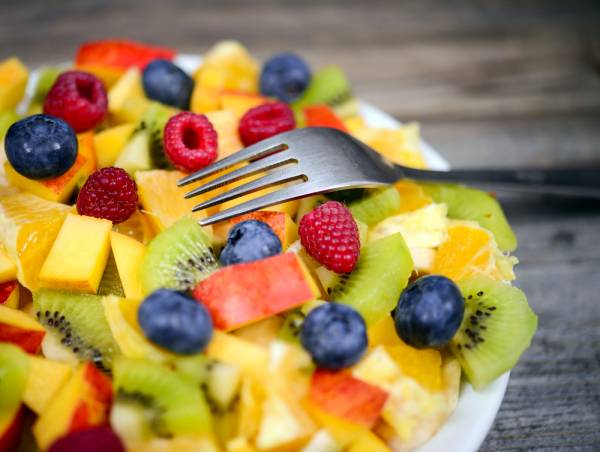Most of the articles I write tend to be academic in writing style. I feel it is extremely important to get the science out there so people can read and make the best decisions for their health based upon that same science. However, I feel sometimes we get too deep into the science and forget to take a step back and look at the bigger picture.
The Science of Epigenetics
As coaches, this is our job. Whether we are strength, health, or nutritional coaches, it is our job to assess our clients and develop the best program that will fit their needs and get them to their goals. There is not, and never will be, a one-size-fits-all approach. We are all our own unique little snowflakes. In my opinion, this is what makes coaching fun and keeps it interesting.
But all too often I am asked questions such as:
- “Is this paleo?”
- “Carbs are bad, right?”
- “What do you think of CrossFit?”
The answers to these questions are not as simple as “yes” and “no.” Health and disease are placed upon a large spectrum. There are a number of factors that can influence whether we will live long and healthy lives or suffer from disease. In fact, there is a whole science trying to figure out this phenomenon and it is known as epigenetics.
The Importance of Nutrient-Dense Food
In a small nutshell, epigenetics is the science of gene expression. It used to be thought that we were doomed by our genetic makeup. However, this has been proven to be untrue. There is a whole system in our body that listens to external and internal cues that influence which genes express themselves. Every little bite of food can alter gene expression and affect health according to research out of UMASS Medical School.1
Does this mean we can never have a bite of pizza or ice cream again? Absolutely not. If anything, I think it gives us the go ahead to be “bad” with our diets every once in a while. If every bite of junk food affects gene expression, so will every bite of nutrient-dense foods such as fruits, vegetables, meat, fish, and eggs. Therefore, if you are going to indulge in pizza and ice cream every once in a while, just make sure the majority of your diet is comprised of nutrient-dense foods.
Where we can run into problems is when we do not consume enough nutrient-dense food and our diet becomes focused around food that is high in calories and low in nutrients. Typically, this is where I tell clients about the 80/20 rule. 80% of the time, you should eat foods that are high in nutrients. The other 20% of the time, you can go ahead and indulge. This 80/20 rule works well for most, but some people need to follow a more strict diet and 90/10 may be a better option.

Why You Might Need to Go 90/10
Our genes have our family history tied up in them from the beginning of time. If we come from a family that is predisposed to diabetes and obesity, your body may be more apt to express those genes, so you just might have to keep your diet a little tighter. We are all different and there is some individual experimentation that needs to take place. This is not a diet, but a lifestyle change.
We also differ in the amount of carbs each one of us can tolerate. In fact, humans can have anywhere from two to fifteen amylase 1 genes. Amylase is the enzyme responsible for breaking down carbohydrates. The more amylase you have the better you will more likely do on a higher carb diet. (Click here to read a more in depth article I wrote on this matter.)
Diet is not the only thing that influences health. Sleep, exercise, vitamin D levels, social relationships, environmental toxins, and stress all have epigenetic consequences on gene expression. If you sleep well, have good vitamin D levels, have strong social relationships, exercise, and manage your stress, I do not think that rice and beans will kill you. It is when we start putting poor nutrition on top of poor sleep, physical inactivity, and high stress that we can run into problems.
Step Back and Evaluate Your Overall Health
You need to step back and evaluate all aspects of your life. If you are experiencing times of higher stress, then it may be best to make sure the other areas are well taken care of. This means that during this time it may be important to be stricter with the diet and lean on social relationships.
We can also look at each situation and weigh the pros and cons. For example, at a birthday party there will definitely be food that is not good for us. However, there will be stress management, social relationships, and, if the event is outside, even vitamin D – so eat your cake. Just make sure not every day is a birthday.
So to answer the questions posed earlier:
- “Is this paleo?”– Who cares? Make sure that at least 80% of your diet comes from nutrient-dense foods and there should not be a problem for most people.
- “Carbs are bad, right?”– If you have a low amount of amylase copies, then, yes, too much carbohydrate in the diet will likely lead to adverse health effects. However, if you have a high number of copies, then you may actually do better on a higher carb diet. Choose fruits and tubers for your carb choices to make sure you consume nutrient-dense carbs.
- “Is CrossFit bad?”– Do you want to do it and do you enjoy doing it? If yes, then do it. Physical activity and social relationships are also a part of the overall health picture.

Remember that health and disease are placed along a large spectrum and influenced by a number of different things. Take a step back and see what areas need the greatest improvements for you and fix them first.
References:
1. MacNeil, Lesley, et.al., “Diet-Induced Developmental Acceleration Independent of TOR and Insulin in C. elegans. “Cell (2013). Retrieved on august 27, 2014.
Photos courtesy of Shutterstock.






